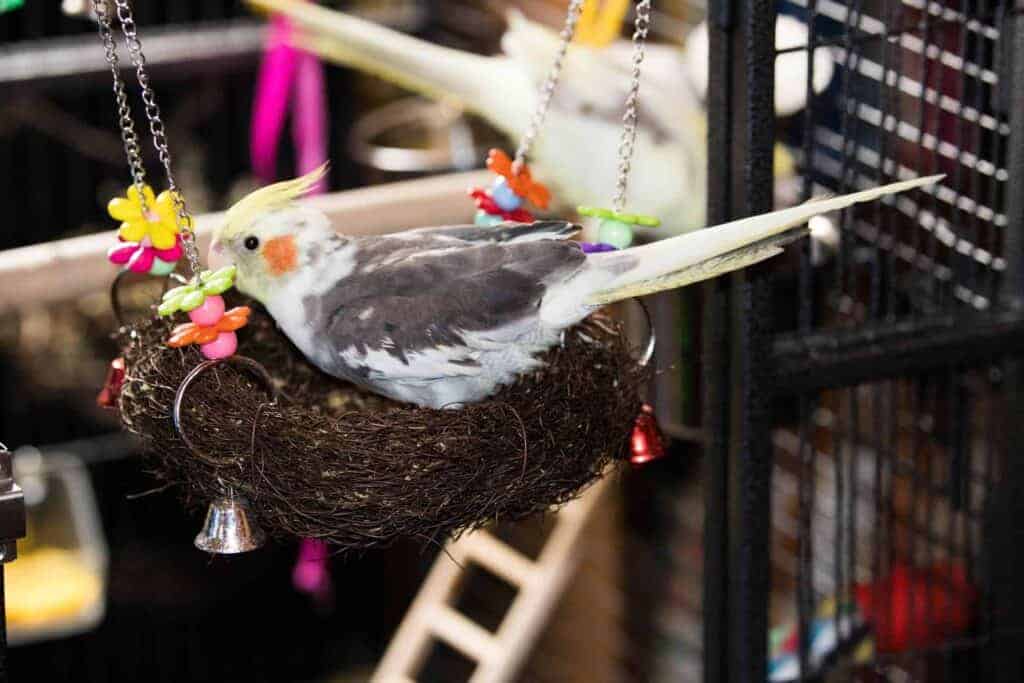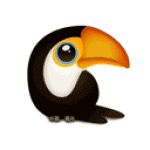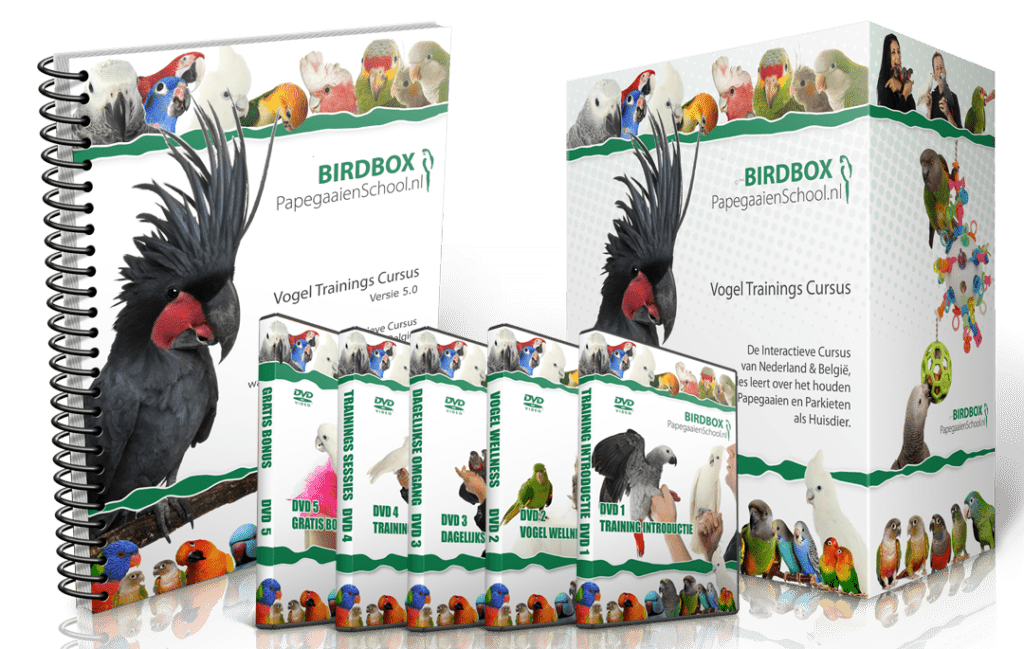Cockatiels are native to the semi-arid regions of Australia. In the wild the average cockatiel age span is about 5-10 years. These are intelligent and social birds who mate for life and enjoy being with others of their kind. These gregarious avians get plenty of exercise while they are on their birdy errands. They are generally busy foraging for food and taking care of their families. Living in the wild, while immensely rewarding, also contains deadly threats from predators.
In captivity, cockatiels can live an average of 10-20 years longer than their wild counterparts depending on the care and emotional state of the bird. It has been confirmed that the oldest cockatiel lived to 31 years of age.
How Long Do Cockatiels Live?
Cockatiels are one of the most popular pet birds, and they can make wonderful companions. But how long do cockatiels live? Generally, pet cockatiels can live between 15 to 20 years in captivity when given proper care, while wild cockatiels may only live for about 5 to 10 years.
The exact lifespan of your cockatiel will depend on several factors including the quality of care you provide. In order to keep your cockatiel happy and healthy for as long as possible, it’s important to provide them with lots of love and attention, a balanced diet, regular veterinary check-ups, and proper housing.
To keep your bird healthy you should feed it a variety of fresh fruits and vegetables in addition to high-quality bird seed. Make sure that your pet bird has access to fresh food and water every day. Additionally, keep your cage clean with regular cleaning and make sure it is large enough for the size of the bird. By taking good care of your pet cockatiel, you can help ensure that they will have a long life.
How long do cockatiels live in the wild?
Cockatiels are a species of parrot that have been kept as pets for centuries and are native to the woodlands and grasslands of Australia. They are known for their distinct crest, which is used to communicate with other cockatiels and express their moods. But how long do cockatiels live in the wild?
The life of a wild cockatiel can range from 8-10 years depending on the availability of food and water, as well as other environmental factors. This lifespan is shorter than that of a pet cockatiel, which can live up to 15-20 years when provided proper care and nutrition.
Because they live in such a harsh environment, wild cockatiels must constantly be on the lookout for predators while finding enough food to survive. It’s important to remember that there are many dangers out in the wild that can reduce a cockatiel’s lifespan, so it’s important to provide them with enough food and water if you come across one in nature.
How long do cockatiels live in captivity?
Cockatiels make wonderful companions for those looking for a feathered friend. It is important to know how long do cockatiels live in captivity so that you can ensure your cockatiel has the best care and longest life expectancy possible.
Generally, captive cockatiels can live anywhere from 10-15 years with world records of over 20 years being reported. To ensure your cockatiel lives a long and healthy life in captivity, it is important to provide them with a high-quality diet, lots of enrichment activities and regular vet check-ups.
Additionally, be sure to provide plenty of time outside of the cage and interaction with their owners. With proper care, your pet cockatiel can live a long and fulfilling life in captivity!
How Old is Your Cockatiel?
The age of a cockatiel can vary significantly depending on the individual bird. Generally speaking, young cockatiels are about 5-6 weeks old when they are weaned and ready to leave their parents. As cockatiels get older, it is difficult to accurately determine their age as there are no reliable physical signs that can be used for pinpointing the exact age of a particular bird. Read my other article about determining the age of a cockatiel.


Cockatiels tend to live between 10-20 years, although certain factors such as genetics, environment and diet can affect their life expectancy. As such, the best way to determine the age of your cockatiel is to ask a breeder or avian veterinarian who is familiar with the breed or has experience in aging birds. With this information, you will be able to better care for your pet by providing them with an appropriate diet and environment that meets their needs.
Why do cockatiels die suddenly?
Cockatiels are small birds that can live a long life if given the right care and nutrition. However, in some cases, cockatiels may die suddenly without warning. This can be due to a variety of factors, including an underlying health condition which was not detected or treated in time, malnutrition, or trauma from improper handling.
Wild cockatiels also have shorter lifespans than their domesticated counterparts due to exposure to predators and other environmental hazards. Additionally, if a cockatiel is kept in an improper cage size or setup for too long, it can become stressed and more prone to illness and sudden death.
To ensure your cockatiel bird lives a long life, it is important to feed it a balanced diet, maintain its cage on a regular basis, provide plenty of toys and activities to keep it entertained, and take it to the vet for regular check-ups.
What is Important to Increase the Cockatiel lifspan?
Exercise
If the cockatiel is a caged bird it needs to take flight no less than twice a day. A good tip is to train him to stand on your finger first. Feed or give him his favorite treat in his cage after his exercise. This will entice him to return easily. Be aware that a cockatiel can fly within a short time after having its feathers trimmed. Cockatiels require more frequent wing clipping than other parrots.
Annual Visit to the Veterinarian
A once a year vet visit is imperative to keeping a healthy bird. Topics that you may not have deemed important about the bird’s health may be discussed. This will keep you more aware of what to look for and hopefully avoid a potential illness.
Some signs to be aware of are the following: feathers fluffed for long periods of time, change in droppings for more than two days, sneezing or discharge from nose or mouth, weight loss and decreased appetite. Sitting at the bottom of the cage for an extended period is a sure sign of un-wellness. The cockatiel age span will certainly be shortened if proper attention is not given to its health.
Egg binding and chronic egg laying are the main health concerns of female cockatiels. Because these conditions seriously deplete her body of calcium and other necessary minerals, she should be fed a healthy low-fat diet which is calcium fortified . If fed a seed only diet which is high in fat, she will be susceptible to fatty liver disease.
A cuttlebone is a good source of dietary calcium. It normally comes with a set of clips that attaches to the side of the cage. Another option is to secure it with a plastic tie. If the bird is showing no interest, break off some small pieces and put in the food dish. Another method is to grind up the cuttlebone with a mortar and pestle and mix with the food.
General care
Place the cage close to where you and your family gather frequently. Cockatiels love to be in the center of activity. Be aware that they are sensitive to smoke, gases, smells and drafts. Locate them away from the kitchen and windows.
Be vigilant and alert to even the smallest changes pertaining to behavior and droppings. Cockatiels are affectionate birds who include your as their family. If you are away for an extended period you will be missed. This occurrence and a lack of attention may cause depression.
A way to tell the mood of a cockatiel is by his crest feathers. Straight-up crest feathers can mean he is interested in something or suddenly startled. If he is unhappy or defensive, the feathers are flattened down. He may even hiss. Slightly held back crest feathers with fluffed cheeks is synonymous with a feeling of contentment.
Diet
In the wild cockatiels eat a large variety of foods. Mimic this natural diet to deep the bird interested and healthy. The staple of the food regimen should be 75% good quality commercial cockatiel pellets and 25% commercial birdseed. Supplements to any diet are always beneficial. Because sometimes they can be picky, offer fresh fruits and vegetables. These should make up no more than 20% of the overall diet. Be sure to shred or chop these fresh foods into small pieces.


Spinach, lettuce, grapes, and apples seem to be the most favorited by cockatiels. Also try melon, kiwi, berries and papaya. Feel free to rotate these choices and give every other day or so. Millet spray and honey sticks are excellent treats to be given about once a month. Most importantly, make sure you provide clean filtered drinking water daily. Do not position a perch above a water dish as the droppings will likely end up there.
A list of forbidden foods that should Never be offered because they are extremely toxic to cockatiels are listed below:
- avocado
- alcohol
- chocolate
- eggplant
- cabbage
- caffeine (tea and coffee)
- milk and cream
- raw potato
- rhubarb (all parts, including the leaves)
Also, do not give your cockatiel access to any part of a houseplant.
Make sure your cockatiel gets restful sleep
It is important for your cockatiel to get adequate restful sleep in order to stay healthy. A good rule of thumb when it comes to a cockatiel’s sleeping schedule is to provide them with 12-14 hours of uninterrupted, dark sleep each night.
To ensure that your cockatiel gets the best rest possible, keep their cage in a quiet area away from any loud noises or distractions. Additionally, you can also provide them with a comfortable bedding material such as shredded paper or cloth to help make their sleeping experience even better.
Lastly, if you notice that your bird is sleeping too much during the day and not getting enough rest at night, try to adjust their day time routine so they will be more likely to sleep through the night. With these tips and tricks, you can ensure that your cockatiel gets the restful sleep they need!
Give your cockatiel plenty of love and attention and fun
Giving your cockatiel plenty of love and attention is essential for its health and wellbeing. Your cockatiel needs to feel safe, secure and loved in order to be happy and healthy. You can show your cockatiel love by talking to it, spending time with it, petting it, and playing with it.
You can also provide toys for your cockatiel to play with, such as bells or mirrors that hang from the cage bars. It’s also important to provide a variety of perches with different textures so they can keep their feet healthy by exercising them.
Additionally, you should try to spend some quality time together every day – singing songs or doing fun activities like hiding treats around the house or teaching your bird new tricks. Providing plenty of love and attention along with fun activities for your cockatiel will help it stay happy and healthy!
Keep your cockatiel safe
Keeping your cockatiel safe is essential for its health and wellbeing. Start by making sure that your cockatiel’s cage is secure and locked, as well as the room where it lives. It’s also important to supervise your bird when it’s outside of its cage, as it could easily fly away or get injured.


Make sure any windows, doors and fans are securely closed to avoid having your cockatiel escaping outside. If you have other pets in the house, keep them away from the cockatiel to prevent potential fights or injuries.
Additionally, check for any potential hazards in the environment such as poisonous plants or exposed wires that could harm your bird. Finally, ensure that all toys and perches are free of sharp edges that may injure your cockatiel. With these simple measures, you can be sure that your feathered friend will stay safe and healthy!
Learn how to handle your cockatiel properly
Learning how to properly handle your cockatiel is important for both its safety and yours. To begin, make sure you are gentle and patient when handling your bird. When picking up your cockatiel, approach it slowly and hold out your hand so it can step onto it.
Speak in a soothing voice and avoid sudden movements or loud noises. Once you have the bird securely in one hand, use the other to support its chest and wings to prevent escape or injury. It is also important to keep your fingers away from its beak as it can bite if startled or frightened.
Additionally, avoid extreme temperatures when handling your bird as they are sensitive to temperature changes. Finally, never allow young children to handle birds without direct supervision as they may not know how to do so correctly. By following these tips, you will be well on your way to safely and comfortably handling your cockatiel!
Housing and toys

It is imperative to choose a cage that is at least twice the size of the bird’s wingspan. Cockatiels thrive in pairs increasing the average cockatiel age span. Adjust the size of the cage to accommodate their needs and comfort. Use a variety of perches at dissimilar heights and thicknesses. Different perch textures will help keep the feet healthy.
There is a wide variety of toys especially made for cockatiels available on the market. The average age span of this bird can be lengthened by the amount of joy and interest in life he experiences. Cockatiels love to chew and fiddle with different objects of wood, cardboard and paper. Hiding treats inside a small paper box will be entertaining for both the cockatiel and you. Males enjoy a few mirrors or reflective items. New toys that are challenging and engaging should be presented to replace older ones. This will make the cage a comfortable home and a fun place to live.
Even though the average cockatiel age span in captivity is about 20 years, the quality of life and the companionship of these endearing birds can extend even longer with loving care. If you have adopted your bird and are curious as to how old it might be, research How To Tell the Age of a Cockatiel. Being informed is crucial to being a good pet owner.
What Is The Oldest Living Cockatiel?
The oldest living cockatiel in the world is believed to be a bird named Cookie, who resides in the United Kingdom. According to world records, Cookie was born on February 17th, 1989 and has since lived for over 31 years. That makes Cookie the oldest known cockatiel in the world today.
Cockatiels are a type of parrot that belong to the Nymphicidae family and are native to Australia. They have an average lifespan of around 10 – 20 years in captivity, so it’s quite remarkable that Cookie has managed to live for over three decades so far!
While many people take their pets for granted, Cookie’s extraordinary age serves as a reminder of how precious life can be and how much joy these feathered friends can bring us!
How To Calculate A Cockatiel’s Age In A Human Years?
Calculating a cockatiel’s age in human years is not an exact science, but it can be done. The average lifespan of a cockatiel is 15 to 20 years, depending on the bird’s health and living conditions. To estimate the lifespan of a cockatiel in human years, you should start with their life expectancy.
Generally speaking, the first year of a cockatiel’s life is equivalent to about 15 human years, and then each additional year is equivalent to about 4-6 human years after that. Therefore, if your cockatiel is 5 years old for example, it would be roughly equivalent to an adult age of 25-30 human years. Of course, this will depend on the individual bird’s health and quality of life so it should only be used as an estimate.



